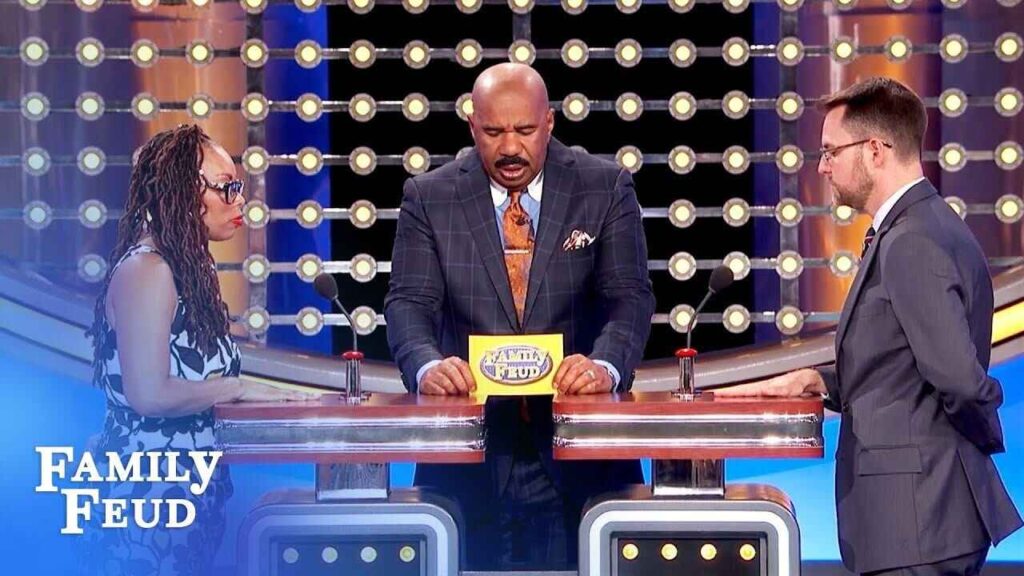Family Feud Goes Public – The Inside Story Of The Trulife Distribution Lawsuit!
The business world thrives on competition, but sometimes that competition spills over into the courtroom. Such was the case with the Trulife Distribution lawsuit, a legal battle that exposed a rift within a family and raised questions about ethical business practices.
This article delves into the heart of the lawsuit, exploring the allegations, the potential motives, and the ultimate resolution.
A Tale of Two Companies – NPI and Trulife Distribution!
The central characters in this drama are NPI and Trulife Distribution, two companies operating in the same industry. NPI, led by Mitch Gould, boasted a successful track record. Trulife Distribution, a younger company headed by Brian Gould, was looking to establish itself in the market.

Intriguingly, Brian Gould is Mitch Gould’s brother. This familial connection adds a layer of complexity to the lawsuit, hinting at a potential underlying conflict that went beyond simple business competition.
The Allegations – A Web of Deception?
In May 2022, NPI filed a lawsuit against Trulife Distribution in a U.S. District Court in Florida. The lawsuit accused the Trulife distribution lawsuit of engaging in deceptive business practices aimed at stealing clients away from NPI. The core of the accusations revolved around intellectual property theft and misleading marketing tactics.
Misappropriation of Case Studies:
The lawsuit claimed that Trulife misappropriated NPI’s confidential case studies. Case studies are success stories showcasing a company’s achievements and expertise. NPI alleged that Brian Gould, having previously held an executive position at NPI, had access to these case studies and used them to Trulife’s advantage.
The lawsuit contended that Trulife presented NPI’s case studies as their own, creating a false impression of Trulife’s experience and capabilities. This alleged deception could have misled NPI’s existing and potential clients, swaying them towards Trulife.
Deceptive Trade Practices:
The lawsuit further accused Trulife of creating imitation email addresses that closely resembled those used by NPI employees. This tactic, if true, could have confused clients and potentially resulted in them unintentionally contacting Trulife believing they were reaching out to NPI.
The Legal Framework – Protecting Businesses and Consumers!
NPI’s lawsuit wasn’t just about unethical business practices; it also invoked legal principles designed to protect both businesses and consumers. The trulife distribution lawsuit cited several key laws:

Florida’s Deceptive and Unfair Trade Practices Act:
This law prohibits businesses from engaging in misleading or deceptive marketing practices that could harm competitors or consumers.
The Lanham Act:
This federal law protects trademarks and prevents businesses from using confusingly similar branding or marketing materials that could mislead consumers about the source of a product or service.
The Anti-Cybersquatting Consumer Protection Act:
This law prohibits the creation of domain names or email addresses that are intended to mislead consumers into believing they are associated with a legitimate business.
By citing these laws, NPI aimed to demonstrate the seriousness of Trulife’s alleged actions and potentially secure a favorable outcome in court.
Read: Exploring The Phenomenon Of Human Gathering Cults!
A Family Feud Goes Public – The Potential Motives!
The lawsuit brought to light a potential family feud between the Gould brothers. While the specific reasons behind the alleged deception remain unclear, some possibilities emerge:
Sibling Rivalry:
The competitive nature of the business world could have been exacerbated by a pre-existing sibling rivalry between Mitch and Brian Gould. Brian, perhaps looking to establish himself and Trulife, might have resorted to questionable tactics to outshine his brother’s company.
Fast-Track to Success:
A younger company like Trulife might feel pressure to achieve rapid success. Misappropriating NPI’s case studies could be seen as a shortcut to building credibility and attracting clients, even if it meant resorting to unethical means.
The Resolution – A Case Dismissed, But Questions Remain!
The Trulife Distribution lawsuit took an unexpected turn in June 2022. NPI, the plaintiff, voluntarily dismissed the lawsuit. This left the public with no clear resolution or official verdict on the allegations.

There are several possible explanations for NPI’s decision:
- Settlement Reached: It’s possible that NPI and Trulife reached a private settlement agreement outside of court. This agreement could have involved financial compensation for NPI, a public apology from Trulife, or a commitment from Trulife to cease the alleged deceptive practices.
- Strategic Move: NPI might have chosen to dismiss the lawsuit as a strategic move. Perhaps they felt confident they could address the issue through other means, such as directly contacting clients to clarify any confusion.
The Fallout and the Road Ahead!
The Trulife Distribution lawsuit may be over, but its impact continues to resonate. Here’s a look at the potential consequences for both companies and the wider industry:
- Reputational Damage: Lawsuits, even if dismissed, can cast a shadow over a company’s reputation. Trulife might face increased scrutiny from potential clients and partners wary of its business practices. Rebuilding trust could be an uphill battle.
- Internal Investigations: The lawsuit likely prompted internal investigations at both NPI and Trulife. NPI might re-evaluate its security protocols to prevent future misappropriation of confidential information. Trulife, on the other hand, might have to address any internal practices that could be perceived as unethical.
- Industry Standards: The lawsuit serves as a cautionary tale for the entire industry. It highlights the importance of ethical marketing and competition. Industry associations might use this case as an impetus to develop or strengthen existing ethical codes of conduct for member companies.
Lessons Learned – Protecting Intellectual Property and Building Trust!
The Trulife Distribution lawsuit offers valuable lessons for businesses of all sizes:

- Safeguarding Intellectual Property: Companies should take steps to protect their intellectual property, including case studies and confidential information. This might involve implementing stricter access controls and employee training on data security.
- Building Trust Through Transparency: Building trust with clients is paramount. Companies should focus on showcasing their unique strengths and accomplishments rather than resorting to deceptive tactics.
- Resolving Disputes Amicably: Lawsuits can be costly and time-consuming. Businesses should explore alternative dispute resolution methods like mediation or arbitration before resorting to litigation.
The Human Cost of Business Disputes!
While the lawsuit focused on legal issues, it’s important to acknowledge the human cost of such business disputes.
Family relationships can become strained, and company morale can suffer. Businesses should strive to find solutions that minimize these negative impacts.
The Future of NPI and Trulife Distribution!
The future trajectory of both NPI and Trulife Distribution remains to be seen. How they choose to move forward will be telling. NPI can leverage the lawsuit to strengthen its position in the market by emphasizing its commitment to ethical practices. Trulife, on the other hand, has an opportunity to rebuild trust by demonstrably changing its approach to competition.

The Trulife Distribution lawsuit serves as a reminder that the business world is not just about profits. It’s also about building trust, fostering healthy competition, and conducting business ethically and responsibly.
Read: Newztalkies.Com – All You Need To Know!
FAQ’s:
1. What was the Trulife Distribution lawsuit about?
The lawsuit centered on allegations by NPI that Trulife Distribution engaged in deceptive business practices. Specifically, NPI accused Trulife of misappropriating NPI’s case studies and creating imitation email addresses to mislead clients.
2. What was the outcome of the lawsuit?
Interestingly, NPI voluntarily dismissed the lawsuit in June 2022. This leaves the outcome unclear, with possibilities including a settlement agreement or a strategic move by NPI.
3. What are the potential consequences of the lawsuit for both companies?
While there was no official verdict, the lawsuit could still damage Trulife’s reputation and lead to internal investigations at both companies. It also serves as a cautionary tale for the industry, potentially leading to stricter ethical codes of conduct.
4. What are the takeaways from the Trulife Distribution lawsuit?
The case highlights the importance of protecting intellectual property, building trust through transparency, and exploring alternative dispute resolution methods before resorting to litigation. It also raises concerns about online deception and the need for a multi-pronged approach to combat it.
Conclusion:
The Trulife Distribution lawsuit may be over, but its legacy endures. It serves as a cautionary tale about the pitfalls of unethical business practices and the importance of fostering healthy competition. It also highlights the challenges of online deception in today’s digital age.
Looking ahead, the choices made by NPI and Trulife will be instructive. NPI can capitalize on this opportunity to solidify its position as a leader in ethical business practices.
Also Read:






